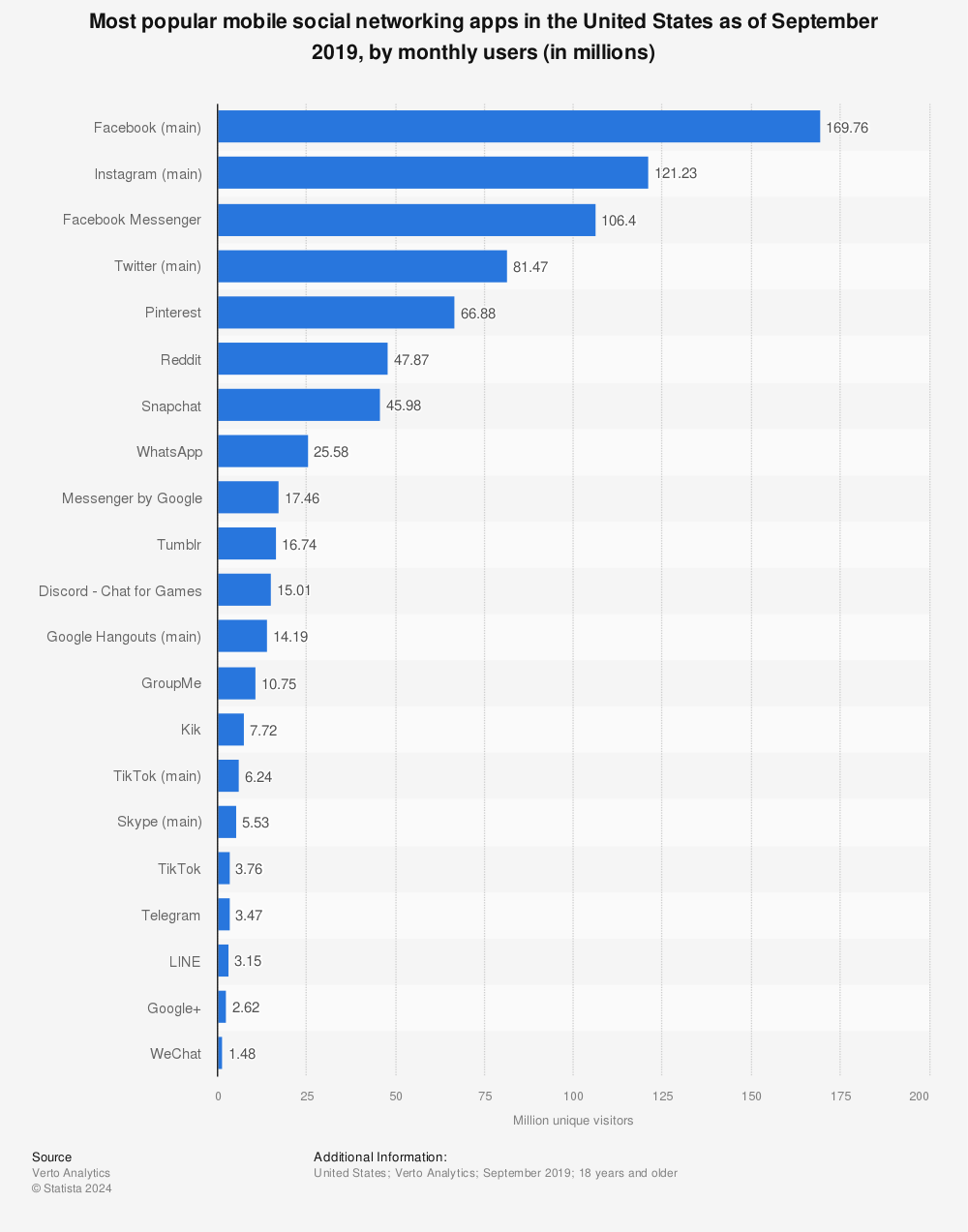Facebook claims it’s not a monopoly, is your whole home screen
Facebook, which Mark Zuckerberg would like to remind you is totally, definitely, absolutely not a monopoly, wants Congress to know it’s all about fair competition. Or at least that’s how the company phrased it in its over 500 page-long list of answers to American lawmakers released Monday. Among the pressures it was trying to defuse was the focus on the stranglehold it has on digital communications; despite Facebok’s protests, it owns several of the most popular communications app, including the three most popular by a large margin.
In response to a particularly pointed question about Facebook’s large market share in the world of social media apps, the company attempted to defuse fears over its seemingly incomparable amount of influence. “In Silicon Valley and around the world, new social apps are emerging all the time,” wrote a Facebook spokesperson. “The average American uses eight different apps to communicate with their friends and stay in touch with people. There is a lot of choice, innovation, and activity in this space, with new competitors arising all the time.”
Eight whole different apps, you say? Well, that seems perfectly reasonable and not at all worrisome. I mean, it’s not as if a significant percentage of those apps were owned by Facebook or anything. Who would leave something like that out?
Facebook would, that’s who.
According to data collected by Statista, four out of the ten most popular social media apps in the US are part of Facebook: Facebook (duh), Instagram (which is owned by Facebook), Facebook Messenger (you get the picture...), Twitter, Pinterest, Snapchat, Reddit, Tumblr, and WhatsApp (also Facebook).

Find more statistics at Statista
Hm, four out of ten apps being Facebook doesn’t exactly seem like a whole lot of “choice, innovation, and activity” if you ask me… Especially when you take into consideration the fact that the total number of monthly users for just Facebook and Facebook Messenger is less than the total number of monthly users for all of the other non-Facebook apps combined.
Seems a tad, oh what’s the word? Monopolistic?